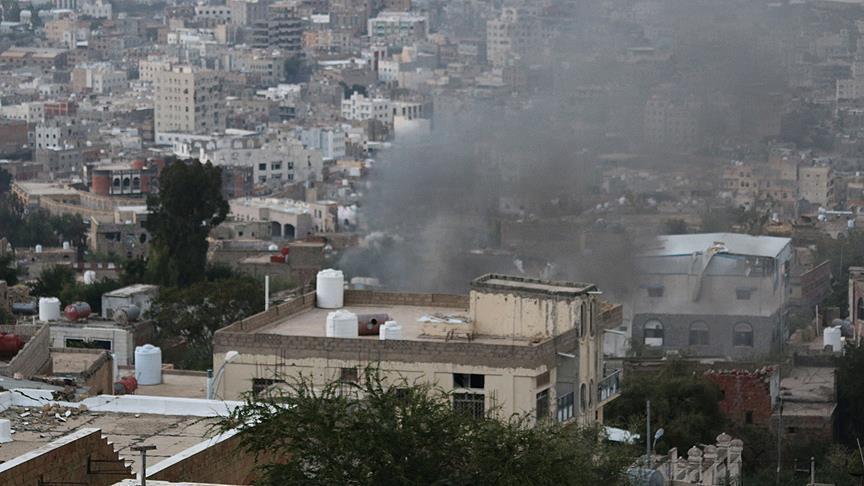US seeks end to Saudi Arabia's Yemen blockade
'The Yemeni people are not the ones at fault for their situation,' State Dept says

By Michael Hernandez
WASHINGTON
The U.S. joined ranks with the UN and 22 aid agencies on Thursday, urging Saudi Arabia to end its blockade of Yemen.
State Department spokeswoman Heather Nauert told reporters the U.S. believes there should be immediate "unimpeded access for commercial and humanitarian good to get into Yemen".
"There is tremendous food insecurity in Yemen right now, some have said that this could be the top humanitarian disaster in the world," she said. "The Yemeni people are not the ones at fault for their situation."
In response to a weekend missile attack on Riyadh by Yemeni rebels, Saudi Arabia closed all of Yemen's air and sea ports on Monday, tightening its blockade and stunting humanitarian relief operations in the country. Saudi Arabia blamed the strike on Iran.
Riyadh and Washington accuse Tehran of supplying missiles to Houthi rebels that have
According to the UN, there are over 20 million people in need of humanitarian assistance in Yemen; seven million of them are facing famine-like conditions and rely completely on food aid to survive.
"In six weeks, the food supplies to feed them will be exhausted. Over 2.2 million children are malnourished, of those, 385,000 children suffer from severe malnutrition and require therapeutic treatment to stay alive," the UN and 22 aid agencies said in a statement.
Noting that the current stock of vaccines in the country will only last one month, the organizations said: "If it is not replenished, outbreaks of communicable diseases such as polio and measles are to be expected with fatal consequences, particularly for children under five years of age and those already suffering from malnutrition."
Indicating that the people of Yemen have already been living with the "catastrophic" consequences of an armed conflict, the agencies added: "Any further shocks to imports of food and fuel may reverse recent success in mitigating the threat of famine and the spread of cholera."
On Wednesday, a senior UN aid official said Yemen could face “the largest famine the world has seen for many decades, with millions of victims,” if the Saudi-led Coalition did not lift a blockade on the war-torn country.
Speaking to reporters after briefing the UN Security Council on the situation in Yemen behind closed doors, UN Under-Secretary-General for Humanitarian Affairs and Emergency Relief Coordinator Mark Lowcock warned the coalition about refusing to allow humanitarian aid to Yemen.
A Saudi-led offensive, which began in 2015, targeted pushing back Houthi advances but has been dogged by widespread allegations of international law violations.
Yemen was already the Arab world's poorest nation before the conflict began. The blockade has only exacerbated a dire humanitarian situation.
Since March 2015, almost 5,300 civilians have been killed and close to 9,000 injured in Yemen’s war. The UN has








